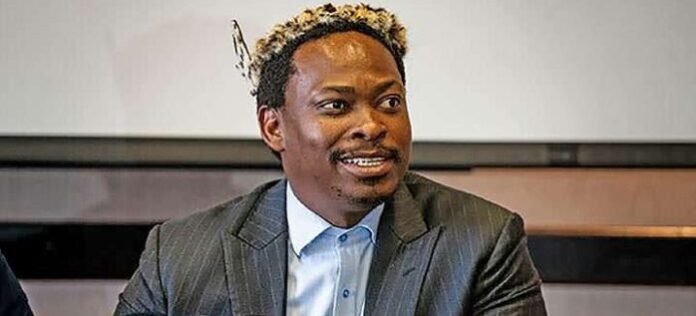Funders are blackmailing opposition parties into participating in the Democratic Alliance’s (DA’s) controversial moonshot pact in exchange for donations.
This was revealed by Xiluva leader Bongani Baloyi on our newly formed podcast, Sunday World Engage, this week. Baloyi told Sunday World the consequences of the financial blackmail led to smaller parties making desperate concessions to the DA for a slice of funding.
He declined to name and shame the culprits, only saying their identities were obvious to see in the Electoral Commission’s Political Party Funding Disclosure Report.
“The deeper problem is that money is coming into politics and buying politicians, parties, and causes,” he said.
The moonshot pact is an alliance of opposition parties working together to unseat the governing ANC during next year’s general elections.
Baloyi said rich people scan the political spectrum, then pick and choose which poor people, like him, to buy for their agency to organise people. He added it was not because the ANC was despicable, but because it may be closing some opportunities.
So, they want to bring in another group of politicians to unlock those opportunities, he said.
Baloyi said that the real fight for these funders was to become the next Guptas, the governing party allies who allegedly played a pivotal role in state capture.
“It is not the fight to save South Africa, but to remove those who are now set to bring in their own people,” he said.
Baloyi said funders would often be emboldened about their interests, even directing the political stances of funded parties.
The influence crosses borders even into international relations on who is better among the West, Russia and China, he said.
He said his party rejected the moonshot pact because it was an association of the defeated.
“It is people who already expect to lose the popular vote. They are being dishonest and they are not fooling anybody.
“It is as though they are saying, ‘We have lost, throw in the towel, and now we are trying to build a new majority’ . We do not want to be associated with those things”, he said.
Baloyi said that for Xiluva, it was better to soldier on in the struggle, saying the party would be ecstatic if it raised at least R6-million for next year’s general elections.
This is in contrast to the hundreds of millions that the likes of the ANC and DA would spend.
Baloyi said Xiluva was driven by its ubuntu founding ideology, which he described as the party’s most exciting offer.
“Many people limit ubuntu to humanism, but we take it down to three further aspects: umuntu ngumuntu ngabantu (co-existence), amasiko (culture), and isuntu (humanity).
He said traditional leaders were the custodians of ubuntu, not politicians.
“What we are doing is returning back to our roots. That is why we are growing so well in rural areas.”
Baloyi likened the Xiluva establishment to the formation of the South African Native National Congress, the predecessor to the ANC.
In the process of forming South Africa’s democracy, traditional leaders lost power to politicians, who rank above chiefs. “Those who are outspoken – like the Zulu King – it is thanks to the land they have.”
He said others like AbaThembu King Buyelekhaya Dalindyebo were also vocal but disparaged as madmen.
“But he speaks the truth, especially about how a president can confirm his royalty using a certificate”.
Baloyi said the AbaThembu traditional institutions had been there for more than 100 years, and presidents couldn’t match that heritage.
Xiluva chairperson Zukizwa Mosiane said the party was optimistic.
While being a newcomer might be a disadvantage, Mosiane said Xiluva brought fresh ideas to the political landscape.
“Our targets are around what the electorate is looking at, and based on that, we predict we will do well,” she said.
Baloyi said South Africa’s Western democracy had limitations. There was more showmanship and less competency, focused on popularity instead of merit, he said.
“You could be the most useless fellow. You have matric – and for some it is questionable – but you have no means of being economically active outside this thing [Politics].”
But, he said, because a group of people came together and said we elect you to represent us then you become the right leader.
Follow @SundayWorldZA on Twitter and @sundayworldza on Instagram, or like our Facebook Page, Sunday World, by clicking here for the latest breaking news in South Africa.



